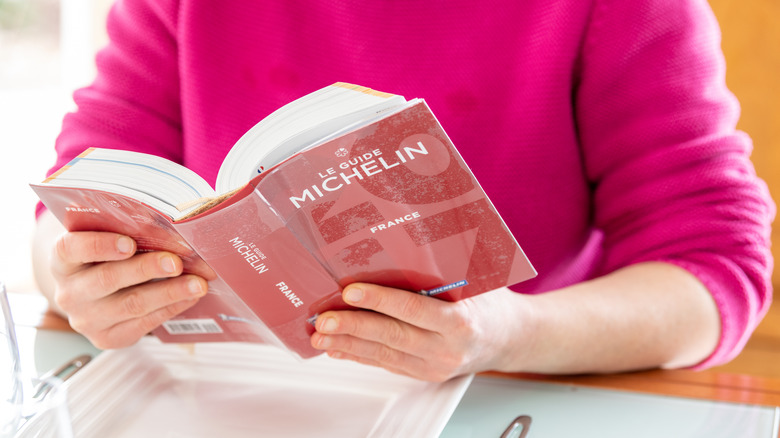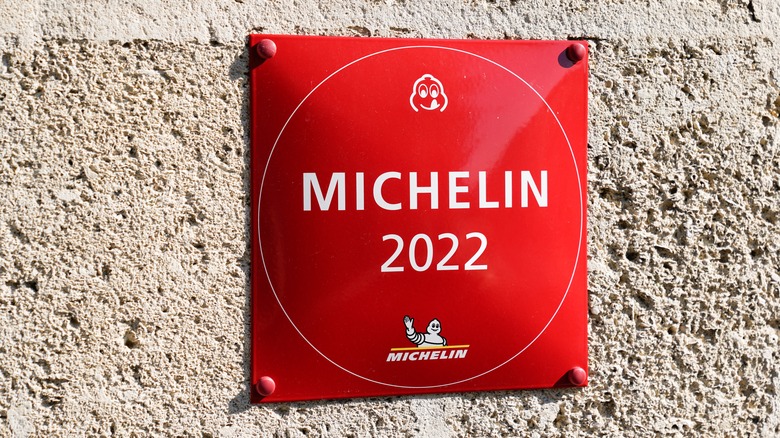Michelin Doesn't Just Affect The Star Restaurant – The Entire City Gets A Jolt
Each year, the Michelin Guide doles out hundreds of stars to restaurants in all corners of the world, and with each star, the prestige of a restaurant seems to increase. Receiving just a mention in the Michelin Guides or even a Bib Gourmand Award — which is bestowed to informal diners that offer top-notch meals at affordable prices — can catapult a hole-in-the-wall eatery into the spotlight. Reservations fill up, business booms, and Michelin brings more patronage overnight.
While the effect that the coveted stars have on individual restaurants is obvious, their impact goes much further: The Michelin Guide and its many awards give the entire dining industry in a city a jolt. After Vancouver got its very first stars last year, J-C Poirier, chef and owner of the one-star restaurant St. Lawrence, told Eater that the recognition gave restaurants in the area a sense of validation, adding that "people fully trust the Michelin Guide and it's saying that Vancouver is part of the world-class restaurant scene."
Even those who didn't make it onto Michelin's first-ever Vancouver guide then had the incentive to strive harder for a place the year after. In Miami, for example, the first Michelin Guide brought about a change in the local dining scene's infamously subpar service. After all, you never know when a diner is going to turn out to be an undercover Michelin inspector. The result? Restaurants — both Michelin and non-Michelin — seemed to up the ante on food, service, quality, and consistency, elevating the entire city's dining experiences.
Michelin Guides also boost tourism
While Michelin gives restaurants renewed motivation and standards to work toward, the organization's designations seems to affect cities and their tourism, too. A Vancouver-based restaurant manager told Eater that "Michelin's concept originally was to get people to travel. If they see us as a hub for a culinary experience, and people are coming here dining and enjoying themselves, that's good for us all." In fact, Michelin has also struck million-dollar deals with countries like Thailand to give their cities their first-ever guides and stars — and with that, a boost in culinary tourism.
In a joint press release with Michelin, the Tourism Authority of Thailand said that Michelin's first Thai guide for Bangkok was meant to "boost high-quality tourism in Thailand" while also inspiring "local restaurants to improve their quality and raise the bar in terms of gastronomic excellence." With the boost in tourism, the Bangkok Michelin Guide was projected to increase each tourist's food spending by 10%.
Michelin's mid-2010s entry into Singapore was also seen by representatives as the securement of Singapore's spot on the global gastro-tourism map. A few years later, the organization's first-ever Miami, Orlando, and Tampa guides were launched in partnership with Florida's official tourism company to boost the state's image as a culinary destination. If these partnerships are any indication, Michelin goes far beyond giving recognition to excellent food — it reinvigorates the entire city's dining industry and boosts culinary tourism.

